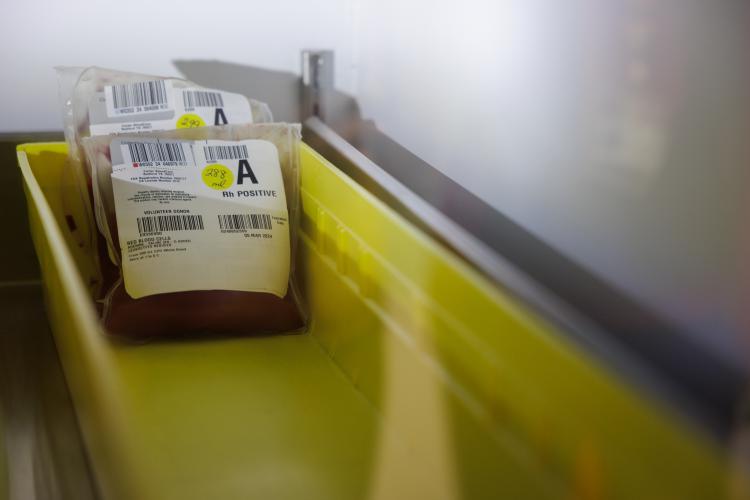
According to Carter BloodCare, around 4.5 million Americans require a blood transfusion each year. To cater to these needs, about 1,500 donors are required daily to meet the transfusion requirements of patients in the community. The partnership between JPS Health Network and Carter BloodCare ensures that the patients in the community have an ample amount of blood supply to cater to any transfusion needs across the network.
"JPS hosts Carter Blood Drives every four months, to help replace replenish our blood supply," Jodi Primero, RN Clinical Resource Specialist, said. "We give a lot of blood here at JPS. In November of 2023, we gave over a thousand units of blood in December 1133 units of blood, and this year, in January 1020 units of blood."
The next blood drive will be held in the JPS OPC Auditorium on February 29 from 7:30 a.m. to 3 p.m.. Representatives from the patient blood management team encourage individuals to donate. It only takes 45 minutes and can help meet the needs of future JPS patients.
"We are holding the blood drive on main campus because we wanted it to be accessible. Everyone is welcome to donate if they meet the eligibility requirements," Primero said. "For our last drive, we aimed to collect 27 units of blood, and we surpassed that with 34 units of whole blood and two units of double red blood cells. This blood drive, our goal is to collect 28 units of blood."
As the demand for blood rises, organizing blood drives becomes crucial. However, it's equally important to find ways to minimize the need for blood transfusions for patients. JPS has implemented the Patient Blood Management (PBM) program to reduce the necessity for blood transfusions.
"This program gives our patients a choice in their care and allows them to contribute to their outcomes"
"The Patient Blood Management program is certified by The Joint Commission and is one of 11 in the nation," Tessa Watson, RN Patient Blood Management Coordinator, said. "Our goal is to not only focus on looking at transfusions but to also mitigate the process before the need arises for a transfusion. How can we boost a patient's blood count if they’re anemic or at risk for bleeding?"
The program received its certification in May 2022 and operates based on evidence-based research collected in partnership with Carter Blood Services. Its goal is to reduce the need for blood transfusions and, if needed, to find the appropriate amount to give.
"We look at a lot of literature and research around blood transfusions and analyzing the minimum but the most effective amount that we can give our patients. That way we're not over-utilizing blood products," Watson said. "We also look at how we manage patient's anemia with alternative nutrition therapies, if available. For our surgery patients, we use 'cell saver,' which takes a patient's blood, spins it down for processing, and then redelivers it to them so they're getting their blood. The risk of any reactions is reduced because they get their product back."
The team has been working to gather blood management information to educate themselves and their patients on alternatives for blood transfusions. This is particularly important for patients who refuse blood transfusions so they can receive the best care possible for their specific needs.
“For patients who choose not to receive blood products, or patients with anemia, the PBM program supports and suggests therapy to support their own blood counts, such as iron to support blood loss, vitamins, and other medications that we can provide to boost blood levels before surgery or in general,” Primero said. "This program gives our patients a choice in their care and allows them to contribute to their outcomes."
